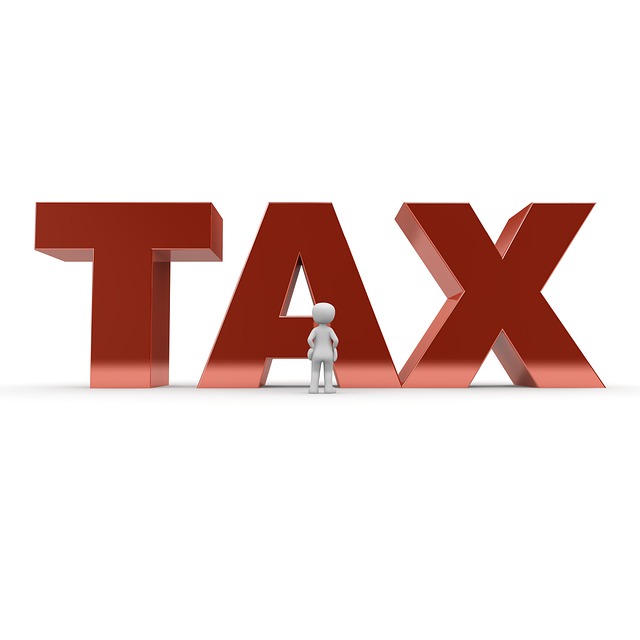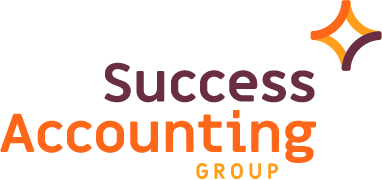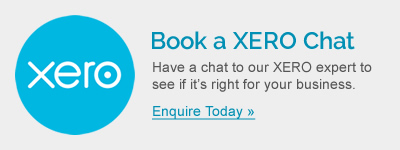The Essential 30 June Tax Guide: Preparing for End of Financial Year
The financial year’s end is drawing near quickly. We list the areas where you could face more scrutiny from the ATO as well as the ways to maximise your deductions.

Opportunities For You
The financial year is fast approaching. Here’s how to prepare for the tax cuts that take effect on July 1, 2024:
- Make any super contributions that are deductible.
- Make sure to schedule any donations to benefit from the increased tax rate.
- This year, pay your deductible expenses in advance.
Bring forward your deductible expenses into 2023–2024 to benefit of the tax reduction that will take effect on July 1, 2024. If possible, pay your deductible expenses in full, contribute to your superannuation, and schedule any charitable contributions to take advantage of the higher tax rate.
Boosting Your Super
If you’re interested in increasing the size of your superannuation and your overall superannuation balance permits it, you can contribute a one-time, deductible amount to your superannuation if you haven’t yet reached your $27,500 threshold. This cap covers the amount of superannuation guarantee paid by your employer, the amount of salary sacrificed into super, and any personal contributions you make that will be eligible for tax deductions.
Additionally, you may be eligible to access any unused concessional cap amounts from the previous five years in 2023–24 as a personal contribution if, as of June 30, 2023, your superannuation balance was less than $500,000. For instance, you may donate an extra $40,000 and claim the tax deduction in current fiscal year at the higher personal tax rate if you were, for each of the previous five years, under the cap by $8,000 dollars.
You must be under 75 years old, file a notice of intent to claim a deduction in the appropriate form (check with your superannuation fund), and receive an acknowledgement from your fund prior to filing your tax return in order to make a deductible contribution to your superannuation. If you meet the work criteria, which is working at least 40 hours in a consecutive 30-day period in the income year (though there may be some specific exclusions), you are the only one between the ages of 67 and 75 who can make a personal contribution to super.
Additionally, you may contribute to your spouse’s superannuation and receive a $540 tax offset if both of you meet the qualifying requirements and their assessable income is less than $37,000.
A higher personal superannuation contribution could help to reduce your tax liability if you are expecting to get a bill this year due to, say, a capital gain on shares or other property you sold.
Make a Charitable Donation
Donations of cash (or occasionally property) to a registered deductible gift recipient (DGR) are eligible for a tax deduction in amounts greater than $2. The value of the tax-deductible donation increases with your tax liability. A $10,000 donation to a DGR, for instance, can result in a $3,250 deduction for those making up to $120,000, but a $4,500 deduction for those making $180,000 or more (not including the Medicare levy).
The donation must be made as a gift and not in return for anything in order to be deductible. DGR’s fundraising events and charity auction proceeds are subject to specific regulations.
Giving to the philanthropic sector can be done in many different ways. It would be worthwhile to look into the possibilities of creating a private ancillary fund or making contributions to a public ancillary fund rather than contributing gifts to a particular charity. Contributions made to these funds frequently qualify for an instant deduction; the fund manages and invests the assets over time. Generally speaking, the fund must give DGRs a specific percentage of its nett assets each year.
Owners of Investment Properties
A depreciation schedule, if you don’t already have one, is a report that assists you in deducting costs related to your investment property’s normal wear and tear over time. Maximising your deductions may be helpful, depending on your property.
Risks For You
Work-from-Home Expenses
Many employees work from home on a regular basis. While you cannot deduct the cost of your morning coffee, cookies, or toilet paper (believe it or not, people have tried), you may deduct certain other costs. However, the ATO monitors expenses related to working from home.
Claiming your work-from-home expenses can be done in two ways: the real approach and the shortcut method.
You can claim a fixed 67c rate for each hour of work from home when you use the short-cut approach. This includes your energy costs (gas and electricity), internet costs, phone costs (mobile and home), and stationary and computer consumables (paper and ink). Because the ATO has said that they would not accept estimations, it is imperative that you maintain a record of the exact days and times you work from home in order to employ this technique.
Alternatively, you can deduct the real costs you have paid over and above your regular operating expenses as a result of working from home. Copies of your invoices and your journal for a minimum of four weeks straight, which corresponds to your regular work schedule, are required.
Landlords Beware
One important thing to know if you own an investment property is that you can only deduct expenses that you paid while making money. In other words, in order to deduct the costs, the property must be rented or actually offered for rent.
It may seem apparent, but the ATO is particularly interested in taxpayers who claim costs for investment properties when the home is in a popular vacation area, is being used by family or friends, or was removed off the market for any other reason.
This tax season, the ATO is vigorously pursuing a number of concerns. Among them are:
- Redrawing and refinancing loans: Generally, interest on the loan amount for the rental property is deductible. However, the loan expenses must be allocated, and only the portion that pertains to the rental property may be claimed, if any portion of the loan is related to personal expenses or if a portion of the loan has been refinanced to free up cash for your personal needs (school fees, vacations, etc.). The ATO finds taxpayers who are overclaiming interest expenses by matching data from banking institutions.
- The difference between capital improvements, repairs and maintenance. Although maintenance and repairs can frequently be deducted immediately, capital works deductions are typically spaced out over several years. The cost of repairs and upkeep must be directly related to the wear and tear caused by renting out the property. Typically, this entails putting the property back in the condition it was in before, such changing out broken fence palings. You are unable to claim that repairs were necessary when you originally bought the house. However, capital improvements to the property, such structural upgrades, are typically written off at a rate of 2.5% of the total construction cost for a period of 40 years following the date of completion. When a whole asset, such as a hot water system, is replaced, it is considered a depreciating asset and the deduction is claimed gradually (other assets have varying rates and time periods).
- When it comes to co-owned property, you often have to claim rental income and expenses based on your ownership position in the property. Joint tenant owners are entitled to 50% of the rent collected, and tenants in common, based on their respective percentages of legal ownership. It makes little difference who covered the costs in reality.
Gig Economy Income
It is imperative that any earnings (cash, appearance fees, and “gifts”) from websites like OnlyFans, Airbnb, Stayz, Uber, YouTube, and others be reported on your tax return.
As soon as the money is “applied or dealt with in any way on your behalf or as you direct,” according to the tax regulations, you are considered to have earned it. This is not when you instruct the money to be transferred to your personal or business account, if you are a content provider, for example, but rather when your account gets credited. You will still be required to pay tax on it even if you squirrel it away from the ATO in your platform account.
Under the sharing economy reporting scheme, platforms providing ride-sourcing, taxi travel, and short-term lodging (less than 90 days) must record transactions made through their platform to the ATO as of July 1, 2023. The ATO will be able to compare this data for the first time with taxpayer income tax returns this year.
As of July 1, 2024, all additional sharing economy platforms will have to begin reporting. Make sure to register any unreported income right away to avoid penalties and interest from the ATO.
Opportunities For Your Business
Bonus Deductions
In 2023–2024, small businesses can take advantage of a number of bonus deductions, such as the energy incentive, the quick asset write-off, and the boost to skills and training.
The rise in the instant asset write-off level, which was announced in the 2023–24 Federal Budget, allows small businesses with a combined annual revenue of less than $10 million to instantly deduct the entire cost of qualified depreciating assets that cost less than $20,000. The government extended this policy to June 30, 2025, in the Federal Budget for 2024–2025
The $1,000 instant asset write-off level would apply in the absence of these measures.
However, due to a debate between the House of Representatives and the Senate on the threshold’s amount and whether the law should also apply to medium-sized firms (up to $50 million), legislation to enact the 2023–24 bill has not passed Parliament.
Similarly, the $20,000 energy incentive that supports electrification and more energy-efficient use in 2023–24 by offering an extra 20% deduction on the cost of qualified depreciating assets or upgrades to already-existing depreciating assets is not yet a law.
Any assets must be erected or used before they can be written off in 2023–2024, assuming both measures are approved by Parliament by June 30, 2024. Improvement costs must also be incurred between July 1, 2023, and June 30, 2024.
The bonus 20% deduction for qualified expenses for outside training given to your staff is a given. Businesses with a combined yearly turnover of less than $50 million are eligible for the “skills and training boost.” The training must have been delivered by an approved training provider and registered and paid for between March 29, 2022, and June 30, 2024, in order to be eligible for the raise. Usually, rather than being for professional development, this is vocational training to acquire a trade or courses that count towards a qualification.
Write-off Bad Debts
Is it certain that your client won’t pay you? By June 30th, the debt can be cancelled off if all efforts have failed. Make sure the bad debt is recorded within a minute or on your debtor’s ledger.
Obsolete Plant and Equipment
Instead of depreciating a tiny amount each year for obsolete plant and equipment that your company has lying on your depreciation schedule, scrap it and write it off before June 30.
Risks for Your Business
If it makes sense to do so, bring forward tax deductions by committing to directors’ fees and employee bonuses (by resolution), and paying June quarter super contributions in June.
Tax Debt and Reporting Obligations
For the ATO, not filing returns is a major “red flag” that indicates a problem with the company. The ATO can just make an assessment of what they believe your business owes, so failing to file a tax return won’t stop the debt from growing. We can help your business by interacting with the ATO on your behalf if it is experiencing difficulties fulfilling its tax or reporting duties.
Professional Firm Profits
The ATO is actively monitoring how earnings go to professionals. Professional services firms are architects, attorneys, accountants, and the like. The ATO wants to see whether any arrangements are in place to redirect money in order to lower the amount of tax that would otherwise be required of them. The ATO is likely to intervene if professionals are not fairly compensated for the services they render to the company, or if their compensation is significantly less than the value of such services.
Have questions or need assistance? Speak with a tax accountant right now to learn how to avoid your risks and maximise your results.

About Lan Nguyen
Lan is the Founder and Chief Strategist at Success Accounting Group, Melbourne based CA firm. In a matter of short 8 years she has built up a reputable Chartered accounting firm with 3 offices and a team of 6 professional accountants and support team members. Her mission is to provide Innovative and Strategic Financial advice to help her customers make smarter financial decisions today for a brighter future.
Success Accounting Group is for established business owners who would like help to grow a sustained business. As a business owner you understand what drives your business success with our accounting team taking care of the rest.




